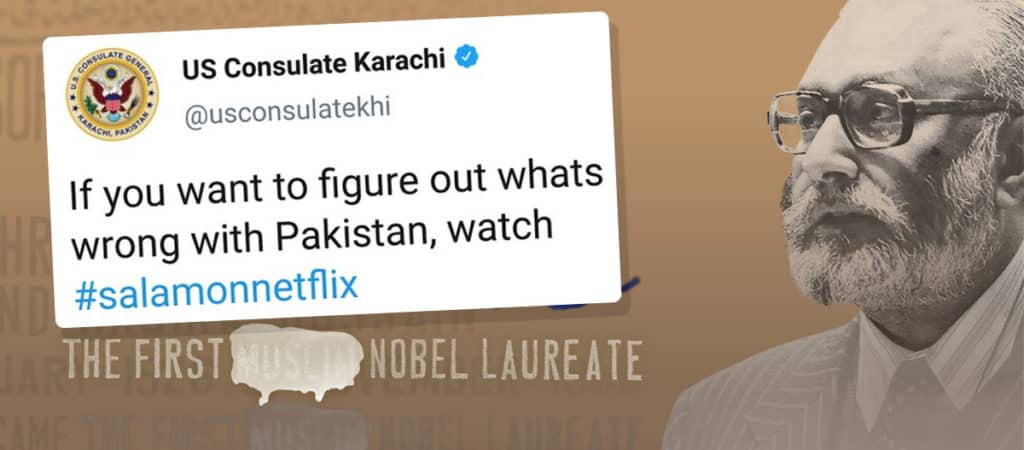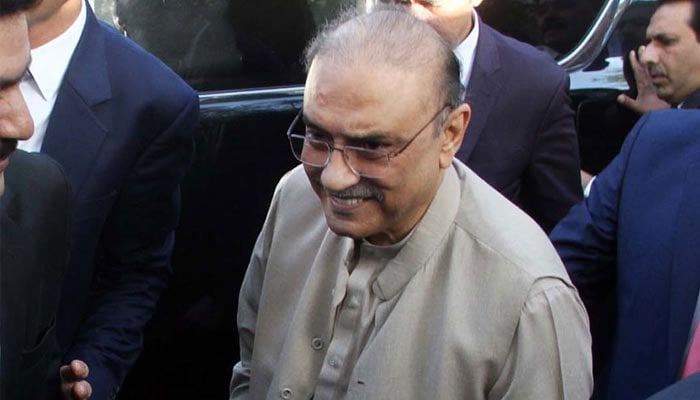M WAQAR..... "A man's ethical behavior should be based effectually on sympathy, education, and social ties; no religious basis is necessary.Man would indeed be in a poor way if he had to be restrained by fear of punishment and hope of reward after death." --Albert Einstein !!! NEWS,ARTICLES,EDITORIALS,MUSIC... Ze chi pe mayeen yum da agha pukhtunistan de.....(Liberal,Progressive,Secular World.)''Secularism is not against religion; it is the message of humanity.'' تل ده وی پثتونستآن
Friday, October 25, 2019
Activist Fatima Gul urges to save Hindu principal charged with blasphemy in #Pakistan
As Pakistan's blasphemy laws guarantee the death penalty or life imprisonment, it has become common for radical Islamic groups in that country to slap blasphemy charges on locals who are unwilling to convert, a Sindhi-American human rights activist has told a US Congressional panel, and cited a case of the anti-Hindu violence that broke out in Sindh's Ghotki last month over a false blasphemy charge on a Hindu school principal.
Fatima Gul, testifying before the Committee on Foreign Affairs, Subcommittee Asia, the Pacific and Non-Proliferation, during the hearing on "Human Rights in South Asia: Views from the State Department and the Region" said, "The vast majority of Pakistani citizens experience oppression, violence, and religious and political persecution by government authorities and their supporters daily.. With the US directly supporting the Pakistani government economically, Pakistani authorities have been able to persistently increase their stranglehold on citizens across the country."
She urged the US Congress and the Trump administration to put pressure on Pakistan to immediately release and save the life of Ghotki school principal Notan Lal. Recounting the Ghotki incident, she said on September 15, 2019, religious extremist groups and gangs of local thugs attacked temples, houses and businesses of the Sindhi Hindu Community in Ghotki.
"The attackers left chaos and terror across the neighbourhoods of Sindhi Hindus, with many fleeing. These attacks on the Sindhi Hindu community were carried out on the pretext that a professor, Notan Lal, had committed blasphemy. Lal and his wife had run a private school in Ghotki for almost two decades.
"One day, when Lal reprimanded a student for bad behaviour, the angry student went to the police station and told officers that the Professor had insulted Mohammad, the Prophet of Islam. Despite the lack of evidence, Lal was taken into police custody. He has not been heard since then."
She said that since 1990, at least 75 people have been killed for blasphemy in Pakistan, while 40 people are serving life sentences or are on death row for blasphemy. Many times, people facing blasphemy charges are killed extrajudicially by fellow prisoners or even mobs and bystanders.
A Human Rights Watch report states: "The government has not amended the law and has instead encouraged discriminatory prosecutions and other abuses against vulnerable groups," she said.
"Even outside of Sindh, the persecution of religious minorities remains a salient feature of Pakistan. Hindus, Christians, Ahmadis, Hazaras, Shias and Zikri Baloch Muslims are common and helpless victims at the hands of religious extremist groups. These groups operate with government impunity," she said.
Gul said that in 1974, Pakistan's Parliament declared that Ahmadiyyas are aKafirs' (heretics). Since then, Ahmadiyyas have effectively been forced out of the political process because they are required to declare themselves non-Muslim in order to be granted a ballot.
"The choice is between practically renouncing our faith or vote," an Ahmadi activist told Human Rights Watch. "This is not a real choice." As with the Sindhi Hindus, the Ahmadiyya community also continues to be a major target for prosecutions under the nation's blasphemy laws. There are constant migrations of Ahmadis out of Pakistan due to continued persecution and violence in Pakistan.
Human Rights Watch reports that the "Pakistan penal code continues to treat posing as Muslims' by Ahmadis as a criminal offense." Ahmadis are required to declare to the state that they are not Muslims, thereby renouncing their faith. They constantly face social discrimination as militant groups and the Tehreek-e-Labbaik Pakistan (TLP) continue to accuse them of "posing as Muslims".
"Anyone who is accused of this vague crime can be convicted," she said. Shias and Hazaras are often major targets by militant sectarian organisations. Many Hazaras "who practice the Shia faith" complain of violence against them by Pakistani authorities, as they are of Mongol descent.
Hazaras accuse the military establishment of supporting terrorist groups who have carried out massacres of Hazaras in the region. Massacres of Pakistani Hazaras, including women, men and children, continues in Quetta and the surrounding area of Balochistan.
Persecution of Ahmadiyya Muslim - U.S. Consulate deletes tweet pointing out Pakistan’s religious intolerance
The U.S. Consulate in Karachi, Pakistan has removed a tweet which pointed out Pakistan’s religious intolerance against its Ahmadiyya community.
The embassy had issued a tweet on Tuesday afternoon urging the public to watch Salam, a documentary film on Abdus Salam, a Nobel prize winning physicist. Salam was shunned by Pakistan due to his Ahmadiyya Muslim faith.
“If you want to figure out what’s wrong with Pakistan, watch #SalamOnNetflix”
The tweet was quickly deleted soon after, but not before it was saved tech savvy Pakistani twitter users.
This tweet was quickly deleted but the staffers at the U.S. Consulate snapped lol
112 people are talking about this
The documentary film which follows Abdus Salam’s journey from a small village in rural Pakistan to worldwide scientific acclaim has won six awards for best documentary film and was released on Netflix this month.
Pakistan partially destroys Mosque of Ahmadi Muslim minority
An Ahmadi Mosque in Punjab province, in south-eastern Pakistan, was partially destroyed on October 25, the latest casualty in Pakistan’s campaign against the tiny Muslim minority.
Assistant Commissioner of Hasilpur, Mohammad Tayyab led the Friday operation which saw the destruction of the Mosque’s Mihrab. He was accompanied by the Police officers and officials from Bladia, the local development authority.
A spokesperson for the Ahmadiyya Muslim Community in Pakistan, Saleemuddin, confirmed the incident saying the Local Government & Community Development authority “destroyed parts of the building without notice”. He added that members of the Ahmadi community who filmed the illegal demolition were also falsely charged by Police.
Today the assistant commissioner of Hasilpur along with Baldia workers attacked the 70 year old Ahmadi place of worship in 161 Murad District Bahawalpur & destroyed parts of the building without notice.@GOPunjabPK @mohrpakistan
247 people are talking about this
The mosque which is located in Chak 161 Murad was constructed in 1949 on land owned by the local Ahmadi community. In May 2018 another 100-year-old Ahmadi mosque located in the city of Sialkot was destroyed by an angry mob.
The Assistant Commissioner of Hasilpur could not be reached for comment.
#Pakistan - #PPP - Zardari’s spinal cord surgery not possible in Pakistan
Sindh Health Minister Dr Azra Fazal Pechuho on Friday said former president and Pakistan Peoples Party (PPP) Co-Chairman Asif Ali Zardari is suffering from spinal pain because of a condition called spondylolysis and he desperately needed treatment which is only possible abroad.
“His [Zardrai] vertebrae L1, S5 and S4 are affected and his pain is growing worse because he is transported for court hearings in armoured personnel carriers,” Pechuho, who is Zardari’s sister, told the media at the Sindh Secretariat.
“There are no physicians available in Pakistan who can perform a spinal cord surgery on him [Zardari],” she added.
The provincial minister said it is the responsibility of the state to provide all medical facilities to her brother. Zardari arrested in fake accounts case
Spondylolysis is characterised by a degeneration of the discs between the vertebrae. It causes significant, chronic pain that interferes with daily activities and is not alleviated by nonsurgical treatments. It required surgery to repair the fracture and, if necessary, fuse two or more bones in the spine.
Speaking about former premier and Pakistan Muslim League-Nawaz (PML-N) supreme leader Nawaz Sharif’s recent health problems, Pechuho said she could only pray for him. “His [Nawaz] family is going through a very tough time,” she added.
The provincial minister also criticised the federal government for dissolving the Pakistan Medical and Dental Council (PMDC) and replacing it with the Pakistan Medical Commission through a presidential ordinance.
“If the federal government wanted to dissolve the PMDC, it should have done it through the parliament.”
Zardari shifted to PIMS, undergoes medical examination.
In June, Zardari was arrested by the National Accountability Bureau (NAB) in the fake bank accounts case.
On October 22, he was shifted to the Pakistan Institute of Medical Sciences (PIMS) on the recommendation of a medical board constituted to examine the health of PPP co-chairman.
The same day, the PPP leader – along with Sindh lawmaker Faryal Talpur – was presented before an accountability court in Islamabad over corruption and money laundering charges in the fake bank accounts case.
The court had extended the judicial remand of both the accused till November 12.






